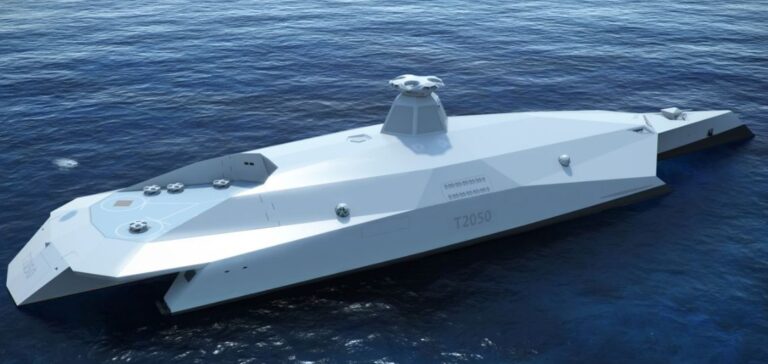Mokpo National University in South Korea inaugurated the Modular Reactor Ship (MRS) Research Institute on July 2, 2024. This institute is the world’s first dedicated to research and education on modular reactor vessels, with the aim of creating a global hub for this emerging technology. This initiative comes at a time when Lloyd’s Register is highlighting the potential of small modular reactors to transform the marine sector, provided that regulatory hurdles are overcome. Recently, South Korea has been investing more in SMRs, as demonstrated by the opening of the new Gyeongju industrial complex.
Background and objectives of the Institute
The inauguration of the institute was attended by over 100 participants, including representatives from Korea Hydro & Nuclear Power (KHNP), the Korea Research Institute of Ships & Ocean Engineering, Korea Energy University, and major shipyards such as Samsung Heavy Industries, HD Hyundai Samho and HD Hyundai Mipo. International classification societies such as the American Bureau of Shipping, Det Norske Veritas, Lloyd’s Register and the Korean Register of Shipping were also present.
According to the United Nations’ International Maritime Organization (IMO) convention, by 2050 all ships must use carbon-free fuels. Mokpo National University noted that these strict environmental regulations are stimulating demand for advanced technologies such as modular reactors. The institute therefore aims to establish a network of cooperation with national and international organizations to carry out in-depth research and promote this technology.
Development and Education
The institute will focus on the development and commercialization of SMR technologies for ships, as well as setting up world-class educational programs to train specialists in this field. KHNP President Whang Joo-ho said the establishment of the institute marks an important milestone for the convergence of Korea’s shipbuilding and nuclear industries, propelling the country as a world leader towards carbon neutrality.
Lloyd’s Register, in its report entitled “Fuel for Thought: Nuclear”, believes that nuclear power could revolutionize the maritime sector by offering an emission-free solution for ships, thereby extending their life cycle and reducing the uncertainties associated with refueling infrastructure. However, regulatory and safety considerations need to be addressed for widespread commercial adoption.
Regulatory Perspectives and Opportunities
The report also points out that the commercial relationship between shipowners and energy producers will be transformed, with power likely to be leased by reactor owners. This would free shipowners from the complexities of licensing and operating nuclear technologies.
Modular reactors represent a major step forward in terms of design, emphasizing safety, efficiency and modularity for streamlined production. As SMR technology matures and regulatory clarity increases, new ship designs optimized for nuclear propulsion will emerge, ushering in a new era of efficient, environmentally-friendly vessels.
Mark Tipping, Director of Power to X at Lloyd’s Register, pointed out that the report represents one of the first easily accessible summaries of the use of nuclear power in commercial shipping, combining information from a variety of sources into a single document for the maritime sector.
Nuclear propulsion could bring immense value to the maritime sector in its quest for decarbonization, enabling emission-free ships with extended life cycles and minimal refueling infrastructure.
The launch of the Modular Reactor Ship Research Institute by Mokpo National University symbolizes a significant step towards cleaner, more sustainable shipping, while reinforcing South Korea’s position as a world leader in maritime and nuclear innovation.






















